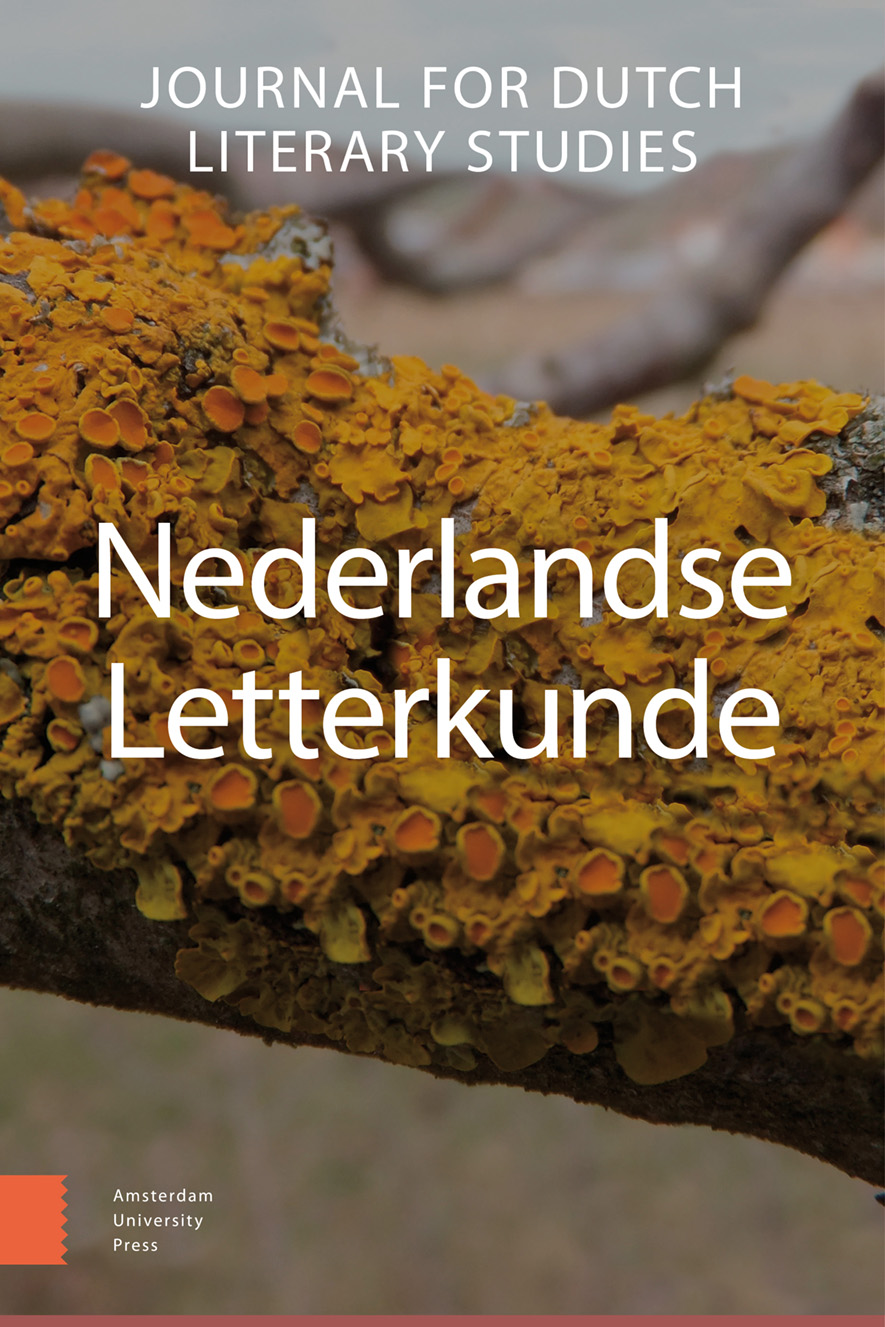- Home
- A-Z Publications
- Nederlandse Letterkunde
- Previous Issues
- Volume 28, Issue 3, 2023
Nederlandse Letterkunde - Volume 28, Issue 3, 2023
Volume 28, Issue 3, 2023
Language:
Dutch
- Artikelen
-
-
-
‘Hoe het voelt om een meisje te zijn’. Representaties van adolescentie in de roman Regeneratie van Eva Coolen
More LessAbstract In Eva Coolen’s novel Regeneratie (2021), adolescence as a stage of life plays an important role. The reader follows two teenage girls, who are on the run from a situation that spiraled out of control as well as from the environment they grew up in. Representations of adolescence/ts in novels influence readers’ ideas about adolescence/ts. The ‘Youth Lens’, coined by Petrone et al. (2014), offers a c Read More
-
-
-
-
Van oude mannen en de dames die erbij staan. De liefdesopvattingen van de Rose-Cassamus
More LessBy Jorn HuboAbstract The Rose-Cassamus is an adaptation of the Old French Vœux du paon in the seemingly love themed Rose-codex. Because love in medieval courtly literature is not a consistent dogma, an examination of the work’s love conception can shed light on both the development of the ideology of love in courtly Middle Dutch literature and the text’s relation to the larger Rose-codex. The traditional relationship between prowess a Read More
-
-
-
De maskers van Louis Couperus. De personae in Nippon (1925) en Het snoer der ontferming (1924)
More LessAbstract By combining the traditional ‘persona’ concept – which served to understand the relation between the author’s world-view and that of the characters in his fiction (Elliott) – with present-day narratological views on authorship (Walsh) and a sociological analysis of the themes in (fictional and nonfictional) travel literature (Moroz), this article construes a new perspective on persona. This conceptualization of persona does n Read More
-
- Recensies
-
Volumes & issues
Most Read This Month
Article
content/journals/13845829
Journal
10
5
false
en


